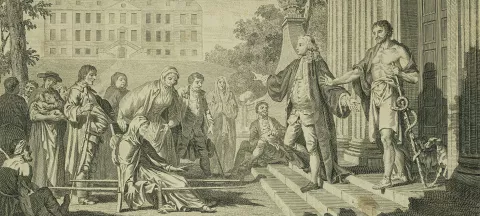Launched in 2021, Oxford Archaeology's research seminar series showcases our work across all periods over wide geographical areas. The underlying concept reflects our strategy to use a research-led approach to our work and to engage creatively with a wide range of audiences: staff, colleagues, students and the academic world, curators, consultants and the general public.
To date, seven seminars have been presented. The first focused on Windy Harbour, near Blackpool in Lancashire, exploring the transition from hunter gathering to farming from the Mesolithic to the Bronze Age. The second meeting examined a key period of settlement pattern change across southern Britain during the middle Bronze Age. The third seminar dealt with perceptions of Iron Age farmsteads in East Anglia, Essex and the Upper Thames Valley, while the fourth compared rural settlement in northern and southern Roman Britain. The fifth seminar focused on early medieval cemeteries in south-eastern and north-western England, and the sixth looked at the provisioning of medieval towns across England. The seventh explored the archaeological and osteological findings from two major early modern burial grounds in Oxford and Hull.
Seminars 1 to 7 are available on Oxford Archaeology's YouTube page at the following link
Upcoming seminars
The next seminar (Seminar VIII) will explore some of the historic factories and other industrial buildings that OA has recorded from its Lancaster and Oxford offices. The seminar will look at three types of structure: Lancashire cotton mills from the early industrial period; a late 19th-century power station in Oxford; and an example of a particular type of early 20th-century structure called the daylight factory.
Papers will discuss the different sites in terms of their architecture, history, structural form and evolution while also assessing what we have learned from them about wider society in these periods. They will consider how industrial architecture has evolved in response to a post-industrial society and unprecedented population growth.
There will be the opportunity for audience members to submit questions to an expert panel during the seminar.
The seminar will be held online on Thursday 21st November at 4.30-6.30pm.

